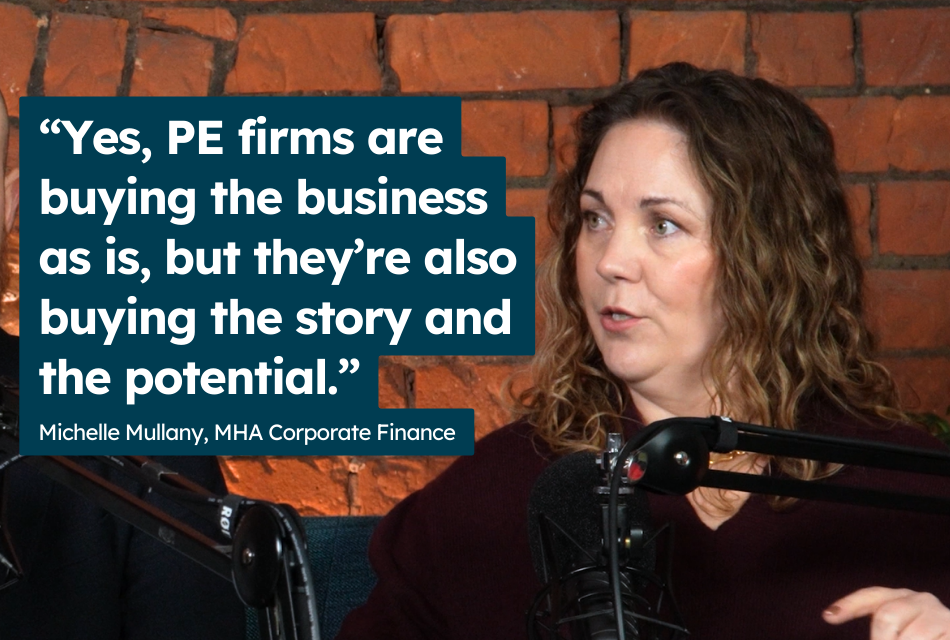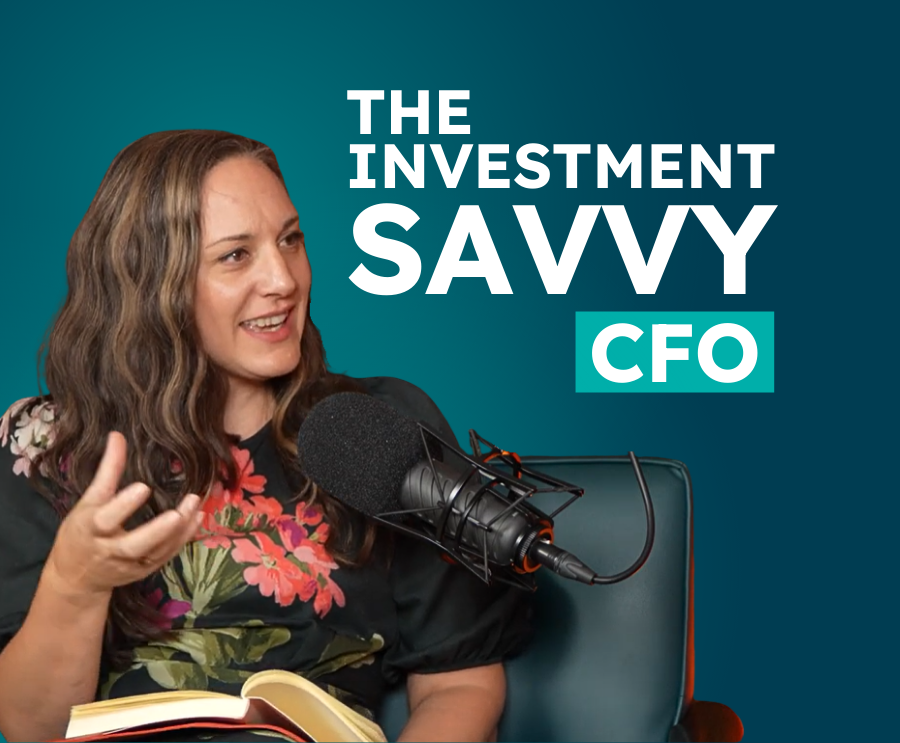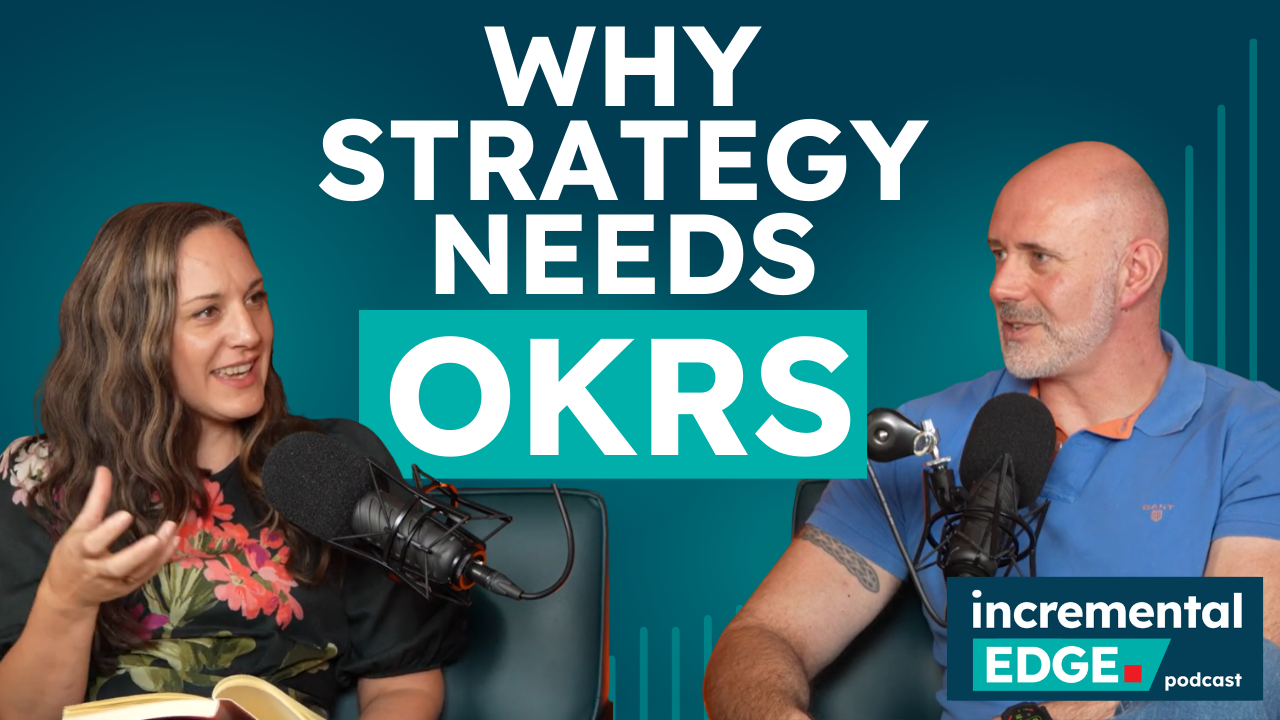
Insights
Shifting From Stability to Growth in Private Equity
7th April 2025
6 min read
Author: Emma Pownall, Marketing Director, Datel
Private equity thrives on transformation and after the initial investment, CFOs are often tasked with changing gears - from stable to rapid growth that will ultimately maximise value and accelerate ROI for the business. This transition is both an opportunity and a challenge, but how do you scale efficiently without losing control? And, how do you unlock new revenue streams while maintaining operational discipline?
In the fourth episode of our Incremental Edge private equity spotlight, our panellists share real-life insights into the CFO’s mind-set shift, and how they can really maximise the value of this investment phase.
What to expect from the episode
🟥 Mastering the Process: Leading with Data
For CFOs steering their businesses through private equity investment, the challenge isn’t just about financial performance - it’s about providing value through data.
Once past the critical first 100 days, finance leaders must establish cadence and consistency. Their role extends beyond reporting numbers; they provide stability, clarity, and strategic direction. Whether managing large capital projects, integrating acquisitions, or optimising operations, value creation is the ultimate goal.
A key part of this is looking at systems and technology. The right financial infrastructure enhances cost efficiency and accuracy, reducing reliance on manual processes. And, with rising labour costs, automation becomes even more essential, helping businesses scale effectively while mitigating risks.
But risk management isn’t just about cost control. Structuring debt properly, monitoring financial agreements, and maintaining transparency are all crucial for long-term stability. While a formal risk committee may not always be necessary, CFOs must keep risk top of mind, ensuring investors see a well-prepared, resilient business.
The Role of Data in Private Equity Evaluation
PE investors no longer rely solely on financial statements and management discussions to assess investment opportunities. Instead, they conduct deep analytical evaluations, using tools like data cubes for a better, clearer insight into the business.
.png?width=853&height=453&name=Blog%204%20graphic%202%20(2).png)
This shift means that finance leaders aren’t just number crunchers, they’re data custodians. Everything an investor wants to validate, from growth potential to operational resilience, flows through finance. In effect, the CFO becomes the project manager of the private equity process, ensuring that insights are structured, accessible, and actionable.
Why Proactive Data Management Matters
Due diligence has become longer and more detailed than ever, with investors demanding access to historical trends, operational efficiencies, and real-time performance insights. Businesses that have invested in strong finance systems and data governance early on will find the process smoother, while those that haven't may struggle to meet investor expectations.
The CFO as the Bridge Between Growth and Governance
Private equity backed businesses thrive on entrepreneurial energy, but they also require financial discipline. CFOs must strike a delicate balance, supporting ambitious growth while ensuring that every decision is backed by reliable data. This combination of strategic oversight and data-driven insight is what turns a good business into an incredible investment opportunity.
🟥 Buy and Build: Integration as the Key to Value Creation
For businesses following a buy and build strategy, the challenge isn’t just acquiring companies, it’s successfully integrating them to create long-term value. Too often, companies focus on buying without fully committing to the build phase and is where acquisition strategies can fail, especially in fragmented industries with plenty of opportunities.
Be aware that timing isn’t always within your control, sometimes multiple acquisition opportunities become available at the same time, forcing businesses to act decisively. But simply acquiring businesses at a lower cost and banking on arbitrage for value creation is a risky strategy. Private equity firms want to see clear strategic intent - not just a collection of businesses, but a cohesive, scalable group with a defined purpose.
Buy and build isn’t just about growth - it’s about creating a scalable, integrated platform that is attractive to future investors.

For CFOs and finance leaders, the message is clear, integration is where true value lies. The businesses that master it will achieve stronger valuations and deliver a successful exit.
🟥How Digital Tools Are Transforming Financial Strategy
Businesses can no longer afford to rely on outdated financial processes and this is becoming ever more evident with the rise of AI and cyber security threats. Every component of a company can benefit from digital transformation, but for CFOs and finance teams, the potential impact is game-changing.
By embracing automation, analytics, and strategic financial tools, finance functions can shift from being reactive to becoming proactive, driving value within an organisation.
One of the most critical areas for transformation is revenue optimisation. Implementing tools that enhance pricing strategies, manage revenue recognition, and reduce revenue leakage ensures that businesses operate at peak financial efficiency.
From day one, an exit strategy is in focus, and every decision made must contribute to building a business that commands value at exit. As Michelle Mullany mentions, private equity investors aren’t just buying a company as it stands; they’re investing in its future potential. To tell a compelling value-creation story, businesses must have the systems, processes, and data in place to demonstrate clear growth and profitability.
Ultimately, finance is no longer just about keeping the books in order, it’s about building a platform for long-term success. By leveraging digital transformation, CFOs can drive operational efficiency, provide strategic insights, and ensure businesses are well-positioned for their next phase of growth and investment.
🟥The Role of Cash Flow Planning
Private equity-backed businesses face the ongoing challenge of securing funding for growth and strategic acquisitions. Cash is the lifeblood of any business, but when a firm has a clear opportunity for growth, such as a strategic acquisition, they may find themselves short on available capital. This is where smart financial strategies come into play.
The first step in funding a major acquisition is often going to the existing debt provider. The goal here is to refinance the current debt based on the combined earnings of the existing and new businesses, potentially unlocking additional capital.
The timing of these funding requests is critical, if it's nearing the exit phase of the investment cycle, the appetite for additional equity will be low. However, if the firm is in the early stages of investment, there is usually more appetite for these types of financial strategies. In either case, the business must demonstrate that the acquisition or investment will lead to greater value creation, making the additional funding worthwhile.
One of the most important aspects of private equity investment is ensuring that the plan aligns with the overall value creation strategy. Whether it's a strategic acquisition or a technology investment, the ROI of each decision must be clearly outlined. PE firms typically prefer to see these investments included in the business case from the outset, with detailed cash flow forecasts that reflect future capital needs.
While PE firms are generally averse to heavy CapEx projects - especially towards the end of an investment cycle, they are more comfortable with investments that don't immediately drain cash from the balance sheet.
Takeaways from Episode 4
Shifting from stability to growth in private equity is a delicate balancing act, but with the right financial strategy, data management, and technology in place, CFOs can unlock the full potential of their businesses. It’s all about taking a proactive approach and embracing digital tools. So, whether it’s through acquisitions, integrations, or technology investments, the right strategy can set the stage for significant growth and a strong exit value.
Incremental Edge private equity spotlight
We hope you enjoy the fourth episode of the series and gain valuable insights on achieving the core goal of value creation.
Latest posts

9th February 2026
3 min read
The Investment-Savvy CFO: A live discussion in Manchester
There’s a point in many growing businesses where the conversation shifts. It’s no longer just about ...
.png)
9th December 2025
4 min read
Learn about the upcoming changes to FRS 102 and how to prepare
FRS 102 is getting a major update from 2026, with big implications for revenue recognition and ...

4th December 2025
4 min read
The OKR Effect: Why outcome focus improves strategic execution
Strategy is something most leaders care deeply about. We invest time building a clear plan, shaping ...
